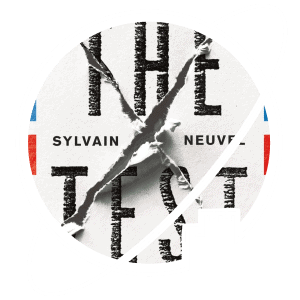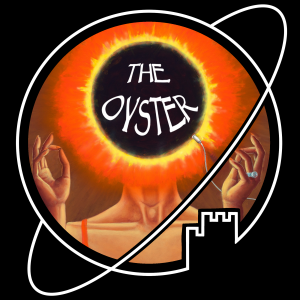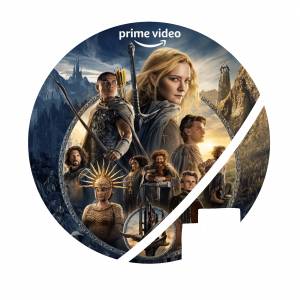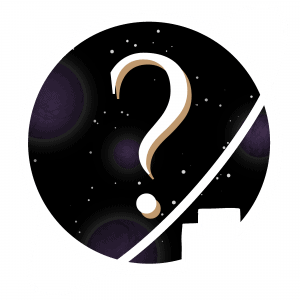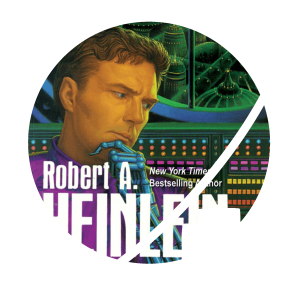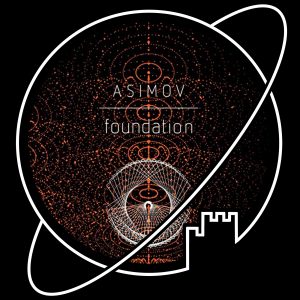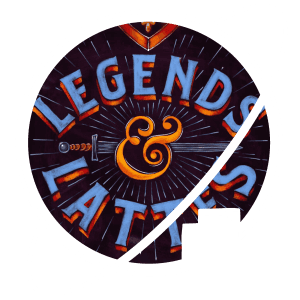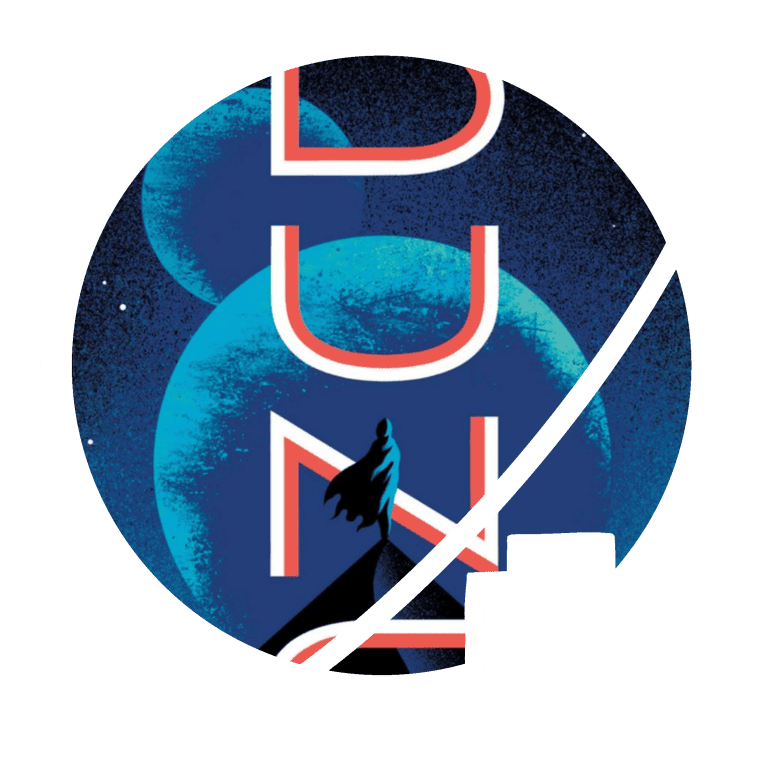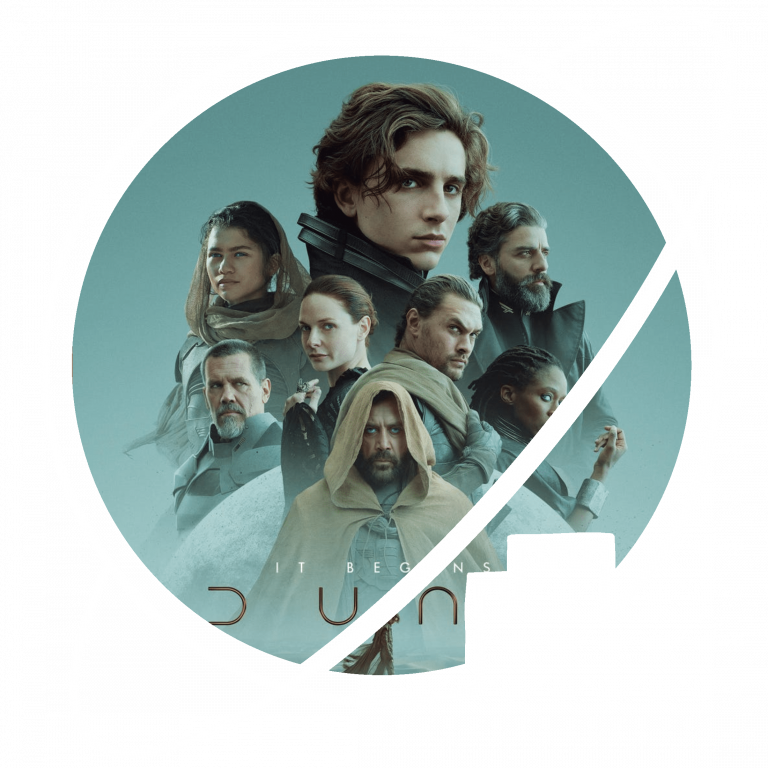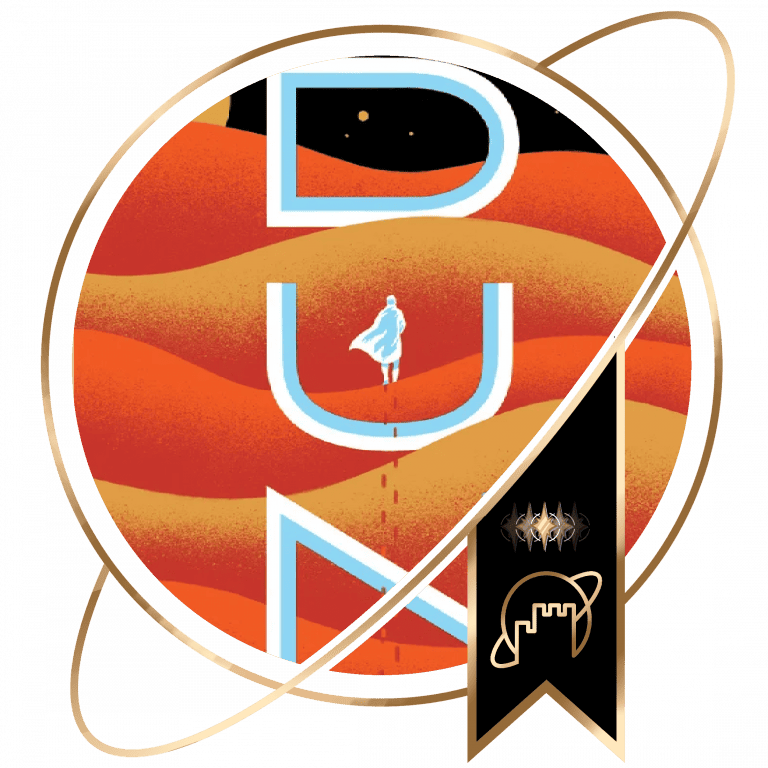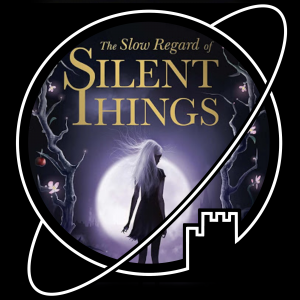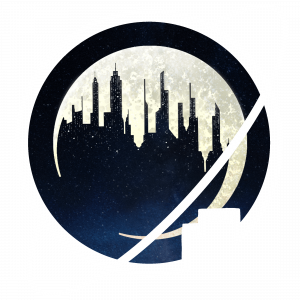Welcome to the Escape Velocity Collection!
We are an opinionated group of friends reviewing all sorts of fantasy and science fiction media. Don’t forget to get to know the curators and visit our curated Collection, where we discuss the stories that never cease to transport us to another world.
Will you escape with us?
LATEST POSTS:
- Book written by Paul Lynch
- Published August 2023


This book was a ‘slow burner’ for me. It wasn’t one of those books that you finish almost in one sitting because you cannot put it down, but weeks and even months after finishing it, this story still regularly pops up in my mind without warning.
The drama is portrayed on a very human level, zooming in on the domestic. You find out about what is going on in the wider world mostly though the consequences that it has for the daily lives of the main characters, but you don’t find out much beyond that. The characters are not necessarily all that likable, and their decisions are at times very frustrating. But because of that they are all the more realistic.
The book isn’t some epic thriller with lots of action, but I think that made it only more terrifying. Slowly but steadily you are being led from a familiar world to one that is completely unrecognizable. It slowly leads you along, until, like Eilish, you realise that it might already be too late. Moreover, this book does not offer you the consolation that it is ‘only a story’: part of the terror is that this is the daily reality of so many people around the world.
The ‘regime’ in this book is faceless and untouchable. There’s no evil dictator, and you don’t get to know the names of any of the major leaders. There is also no clear religious, political or otherwise ideological motive for their actions, except for the universal hunger for power and control. This heightens the sense of powerlessness that you feel while reading this book: you can vividly feel Eilish’s immense frustration and anger, but above all her fear that anything she does will bring harm to her children. The decision not to give the regime a face or an ideological background makes sense, because this book is not about those in power. It’s about the terrible choices that people have to make in the face of violence that is inflicted upon them by forces outside of their control.
While reading, you cannot stop wondering: what would I have done? I hope I will never have to find out the answer.
Time to get to know the Escape Velocity Collection’s curators! How? By asking them the questions that really matter! Let’s see what our curators have to say…
Today’s question is:
Will you watch the Rings of Power season 2?
I might? Honestly, I’m not excited: in the run up to the release of the second season I rewatched a couple of key scenes from the first season, and if they raised any hairs it was because of cringe rather than excitement.
I think the first season was good sparingly, decent at times, and poor most of the time.
The Rings of Power season 1 was let down by poor writing, both in the plot and in the dialogue. These adaptational choices are at the core of what makes a story compelling, and in season one the writers just failed to hit the mark over and over.
I am not confident that season 2 will improve – it would require too much of a break in style. I’m afraid that the Rings of Power will continue to focus on “epic’ moments over coherent characters or narrative. And that would probably mean the second season would be just as much a dud as the first.
Perhaps I’ll watch the Rings of Power season 2 just to keep up – but I’m not particularly looking forward to it.
I think Rings of Power season two will go the way of every show I’ve tried to watch recently. I will watch 2.5 episodes, and then forget it exists.
It happened to House of the Dragon season 2, Emily in Paris season 4 (I never watched seasons two or three, with good reason apparently) and it will happen again. The only reason I finished the first season of the Rings of Power is probably because we watched it together.
It also helps that Peter pays for Amazon Prime. I don’t want to give Amazon my money, and the idea of paying them specifically to watch The Rings of Power is absolutely laughable. I genuinely couldn’t tell you what happened in season one, and I doubt anything of note will happen in season two.
Of course I’ll watch it.
And that’s what annoys me so much: everyone knows this show will have an audience no matter what, because of the legions of the Lord of the Rings–fans who would do anything to feel again, even in the remotest way, like they felt when they first read or watched the Lord of the Rings.
And this means that the makers of the show (or let’s face it: Amazon), can get away with throwing in some gorgeous shots of Rivendell and some incredibly in your face ‘throwback’ references, without having to go to the effort of actually creating a good story.
But who knows, maybe I’m wrong and the story will manage to grab me in the second season. There’s always a chance…
Let me give you all some insight into the inner workings of humans, specifically from the perspective of a spiritual counsellor (in training).
There are very many external forces that can make our lives miserable or hard, and unfortunately, quite a few of these external forces can’t be easily thwarted by our own hands, if they can be thwarted at all. Yes, this is a rather bleak statement, but bear with me…
As if the existence of these unbeatable external forces isn’t tiresome enough, our brains are also prone to some rather unhelpful thought patterns that can make every experience worse.
That’s what brings us to ‘ambivalence’: experiencing two (or more) contradictory emotions, thoughts or beliefs at the same time. Most people have a hard time dealing with ambivalence. Not only in others, but especially within themselves. We like to be consistent. We like things to be clear.
As a result, we feel embarrassed or revolted by one of these contradictions within ourselves and might have the urge to repress it, thinking that this might solve the discomfort we feel.
However, the truth is that ambivalence was never really the problem to begin with. No, the problem was always our inability to deal with the ambivalence as an essential part of our being.
I’ll most likely watch season 2 of the Rings of Power, I can’t help it. And if season 1 was a promise of what can be expected, I’ll spend half of the time scoffing at subpar pacing, missed opportunities, and unnecessary deviations from the source material. The other half of the time, I’ll simply enjoy every time I see a glimpse of an dwarf or an ent or some beautiful landscape.
This is the ambivalence that exists within me…
That’s it: another soul-searching question answered!
Still curious? Visit each curator’s page to see what they’ve recently been up to!
Check out our previous run ins with Amazon Prime's The Rings of Power here:
- Novel written by Arthur C. Clarke
- Published in 1951
- Standalone


Listened to the audiobook with Greg Wagland – good narrator.
There is always something fascinating about reading science fiction from before some of humanity’s milestones in space exploration. It has not even been a century, but there is such a gulf separating especially the details of imagined and real life. With science fiction this old, you can laugh at all things the authors got wrong, and marvel at the things they got right.
In The Sands of Mars, I was actually rather surprised at how much thought Clarke seemed to have put into the colonisation of Mars; my experience with 1950’s science fiction is that whiIe it may be well thought-out, it doesn’t generally care about accuracy. The Sands of Mars is different: I would label it ‘hard science fiction’, or at least, a 1950’s attempt at hard science fiction.
Having said that, there is a lot in The Sands of Mars that is patently ridiculous to the modern reader, such as thriving vegetation on Mars, print newspapers in the village-size colony, or the fact that all women on Mars appear to be secretaries(?). But it is exactly these kinds of ‘misses’ that make you appreciate the ‘hits’ all the more: if Clarke was writing from such a different society and with so little knowledge, then each time he got it right is pretty impressive.
Still, if you’re looking for a slightly more recent (though the 1990’s aren’t exactly modern either) novel on the colonisation of Mars which fits more closely with our current understanding of the physics, I would rather recommend Kim Stanley Robinson’s Red Mars instead.
Back to The Sands of Mars – it’s fascinating for it’s historical vantage and in the history of sci-fi, but is it any good as a novel?
I rather liked Clarke’s playful twist of writing the novel from the perspective sci-fi writer Martin Gibson who gets invited to describe the Mars colony, who actually gets to experience that disconnect between what he wrote and predicted with reality – it gives the novel a nice ‘meta’ feel without feeling forced.
Besides that clever premise, I think the plot is really nothing special – it has the typical 1950s style of mostly taking place in armchairs and behind office desks, with the added drawback of Gibson never quite taking charge of the goings on. Gibson is a wonderful fish-out-of-water that other characters can explain the details of spaceflight and living on Mars to, but he is trailing the plot basically all the way to its resolution (perhaps with one exception where he entirely accidentally stumbles upon a relevant development).
On the other hand, I think Gibson comes to life quite well for a protagonist in an early sci-fi novel – he seems quite a bit more complete than most 1950’s British gentleman-heroes.
In the end, I think the combination of a multidimensional main character and the interesting 1950s vantage make The Sands of Mars well worth reading – though always realise that you’re traveling back in time some three quarters of a century as much as you travel into an imagined future.
- Novel written by Heather Fawcett
- Published in January 16, 2024
- Part two of the Emily Wilde series


As you can probably tell from my 4,5 star review of Emily Wilde’s Encyclopedia of Faeries, I really enjoyed the first book in this series. It’s just the right amount of cosy with some stakes to keep it interesting. I actually rushed out to buy the sequel once I finished it because I didn’t want to leave the world of Emily Wilde quite yet.
Emily Wilde’s Map of the Otherlands did not disappoint. It has all the same cosy vibes as Encyclopedia of Fairies, though perhaps they don’t charm me as much as they do in the first book. However, the plot is slightly stronger in this one. We also finally get some indication of when the story takes place, something that is left out of Encyclopedia of Faeries. It seems to be set in the 1910’s.
I liked the characters a little less in this book. Everyone seemed a little flatter than they were in the first book, and the side characters of this book weren’t as charming as their predecessors.
Overall, Emily Wilde’s Map of the Otherlands is a worthy successor to Encyclopedia of Faeries. Maybe it’s not quite as good, but if you loved the first book, it’s definitely worth picking up the sequel!
Tagged:
See also:
- Book written by Frank Herbert
- Published April 1976
- Part three in the Dune Chronicles


2.5 stars – I bet you didn’t see that one coming. Neither did I. Or, at least, I wasn’t expecting a drop that big compared to Dune and Dune Messiah. Let’s examine what happened.
One of the things I noticed is that Herbert’s style is getting boiled down further and further in Dune Messiah and Children of Dune: Dune has palace politics, hard-to-follow conversations on the edge of a knife, and occult tradition – but it also has really interesting worldbuilding and a plot that ultimately fits our traditional understanding of a fantasy plot. Dune is a complex, layered book that offers the reader something on many levels.
Dune Messiah has a lot more of the palace politics and the conversations-as-duels, and less worldbuilding, but the plot and theme connect to Dune very well. It also wrapped up Paul’s storyline nicely. I think Dune Messiah is a lot less layered than Dune, leaning more heavily on Herbert’s signature style. But it leaves enough of a ‘traditional’ novel to make the more surreal elements of Herbert’s writing feel mysterious rather than breaking your suspension of disbelief.
Children of Dune takes another step on the road, with even more of that trademark Herbert and even less traditional novel: sometimes, it felt like it was only palace politics and esoteric conversations that us mortals can only half follow along with. Perhaps the Dune Chronicles finally arrived at the point where it got too smart for me: While reading Children of Dune, I kept trying to distil meaning from long pages of platitudes and to understand why characters were doing certain things.
As a result Children of Dune was a pretty draining read, mostly in the sense that it took a lot of focus and I had to put it away after about half an hour each day. That effect is not helped by the fact that the plot of Children of Dune is really rather limited for how long the book is; I didn’t feel like I was progressing through the narrative much.
The plot is also pretty back-loaded – the most important development happens about 80% into the story, and I can’t help but feel like it wasn’t really foreshadowed. Perhaps I just wasn’t smart enough to notice; perhaps I would have to read the novel again to pick up on clever hints that I now missed.
That begs the question: will I read Children of Dune again? I’m not sure.
This review up until this point reads like I hated it, and I need to clarify that I didn’t. I enjoyed reading more about Arrakis, I enjoyed the mystery injected in the story by the character of the Preacher, I enjoyed the Bene Gesserit scheming, I enjoyed poor old Stilgar trying to make sense of a world that had outgrown him. I like Herbert’s style of prose and even though it was perhaps a bit much in Children of Dune, I like those 3D-chess conversations and that sense of mystery. And I love that Herbert fully commits to his choices in the previous novel, leaning into the surreality of it all.
But I also need to be honest: I read Children of Dune because it is a Dune-novel and because I love Dune. Had this been a standalone, I might not have made it to the end.
And as a side note, I now understand why Denis Villeneuve wanted his Dune-trilogy to only cover Dune and Dune Messiah rather than having to find a way to commit Children of Dune to film.
I knew that the quality of the Dune Chronicles steadily falls off as it progresses, but to be honest, I was still a bit disappointed by Children of Dune. Knowing what Herbert can do if he is held back just a little from going all-out on his surreal style, one cannot help but wonder what Children of Dune and the rest of the series could have been like if Herbert’s editor would have stood their ground a bit more firmly (though I understand the novel was initially serialised, making that a much harder task).
As a big fan of Dune and the type of sci-fi nerd that even has a review website for a hobby, I am duty-bound to continue the series and to be honest, I am genuinely curious about God-Emperor of Dune. I wonder, what does a novel look like when it is just Frank Herbert’s mysticism? Only one way to find out…
Tagged:
See also:
- Novella written by Nghi Vo
- Published 7 May 2024
- Part 5 in the Singing Hills Cycle


Listened to the audiobook with Cindy Kay – her style really fit The Brides of High Hill well.
Because of the mystery at the core of The Brides of High Hill, I’m going to have to be a bit more cautious in my review.
I’ve said in the past that I like it when a series reinvents itself over time and shifts genre somewhat. The Brides of High Hill does just that. Without going into detail, the novella takes an unexpected dark turn, setting it apart from the rest of the Singing Hills Cycle. And I love it! It helps keep the series fresh and interesting.
After Mammoths at the Gates, which focussed on Chih’s character and background, Vo takes us back on an adventure that is more about atmosphere, though in keeping with the series’ transition away from frame-narrative style stories, Chih is very much the main character of the story.
Vo does a great job with dark atmospheric horror. The Brides of High Hill is dripping with spine-tingling moments and constantly keeps you guessing at the next page. The novella format is very well suited to this kind of story where the writer is constantly wrong-footing the reader. After all, in such a short format, the reader never feels strung along for too long and the tension never snaps.
There is little else I can say about The Brides of High Hill other than that I think that Vo is once again underlining how good she is with novellas.
Unfortunately for me, The Brides of High Hill is the last instalment in the Singing Hills Cycle that has been released at the time of writing… I can only hope Nghi Vo will continue to give us stories about Chih in the near future!
Tagged:
See also:
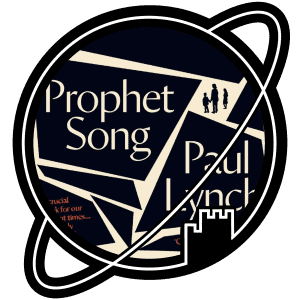
Review: Prophet Song – Paul Lynch
From the cover:
On a dark, wet evening in Dublin, scientist and mother-of-four Eilish Stack answers her front door to find the GNSB on her step. Two officers from Ireland’s newly formed secret police are here to interrogate her husband, a trade unionist.
Ireland is falling apart. The country is in the grip of a government turning towards tyranny and Eilish can only watch helplessly as the world she knew disappears. When first her husband and then her eldest son vanish, Eilish finds herself caught within the nightmare logic of a collapsing society.
How far will she go to save her family? And what – or who – is she willing to leave behind?

Curator Question: Will you watch The Rings of Power season 2?
Another question for our curators: How do they feel about the second season of Amazon’s The Rings of Power? They watched season one together, to generally mediocre reviews…

Review: The Sands of Mars – Arthur C. Clarke
Famous science fiction author Martin Gibson is invited to board the Ares, the first large-scale space passenger liner, on its maiden voyage to humanity’s experimental colony on Mars. As he befriends the crew of the space ship and explores the small settlements on the red planet, Martin Gibson quickly finds that his previous works were rather less accurate than he had hoped – and that there are all kinds of plans in motion behind his back.

Review: Emily Wilde’s Map of the Otherlands – Heather Fawcett
After finishing her Encyclopedia of Faeries, Emily Wilde sets out to create a map of the “Otherlands”, the realms of Faerie. She plans to find the nexus, a door to several faerie realms, including the world of her colleague (and exiled faerie king) Wendell Bambleby. When Wendell suddenly finds himself in the crosshairs of his stepmother’s assassins, he and Emily take off to find the nexus, and face Wendell’s aggressors, in the Austrian Alps.

Review: Children of Dune – Frank Herbert
Part three in the Dune Chronicles – the Known Universe is ruled from the temples of Arrakis by Alia, the sister of Paul “Muad’Dib” Atreides, the Fremen messiah who walked off to disappear into the desert. But the the Atreides’ hold on power is not a secure as it seems, and enemies old and new stir. Meanwhile, the pre-born children of Muad’Dib, who combine the knowledge and experience of all their ancestors in the body of a 9-year-old child, are moving to exert their own influence and claim their place at the halls of power in Arrakeen.

Review: The Brides of High Hill – Nghi Vo
Chih is a cleric from the Singing Hills monastery, travelling the world gathering stories. When they arrive at a great lord’s estate to attend a wedding, they are surprised at the little tensions they find. And what to think of the lord’s son being kept away from the guests? When Chih starts exploring, things quickly take a dark and mysterious turn.










